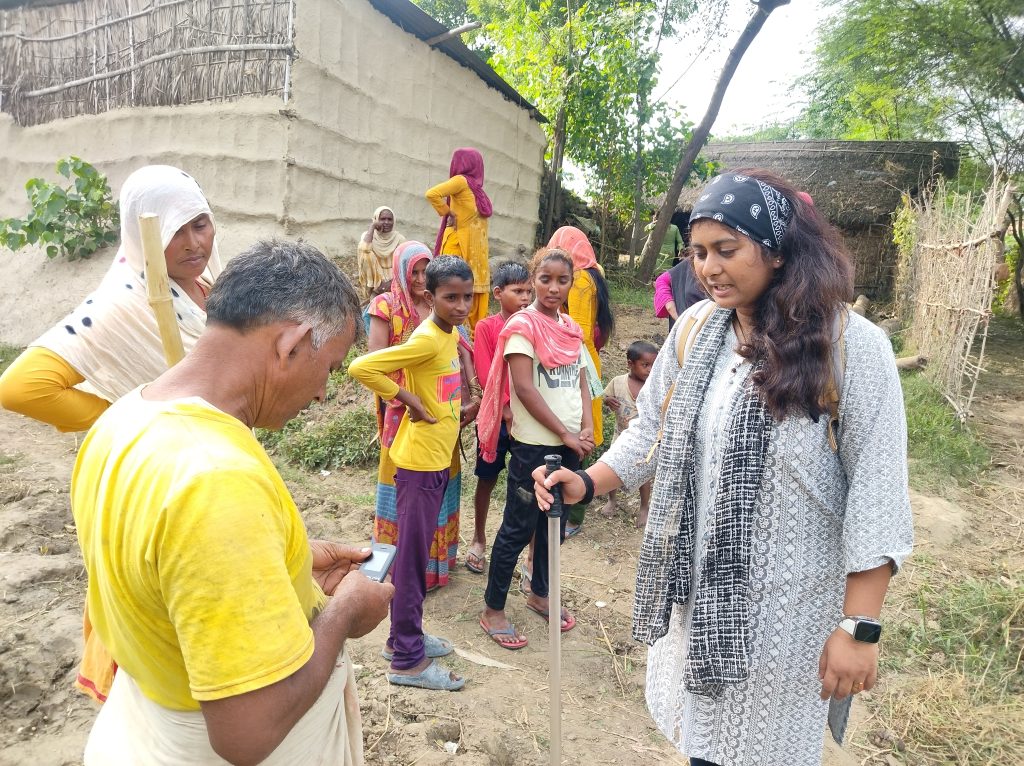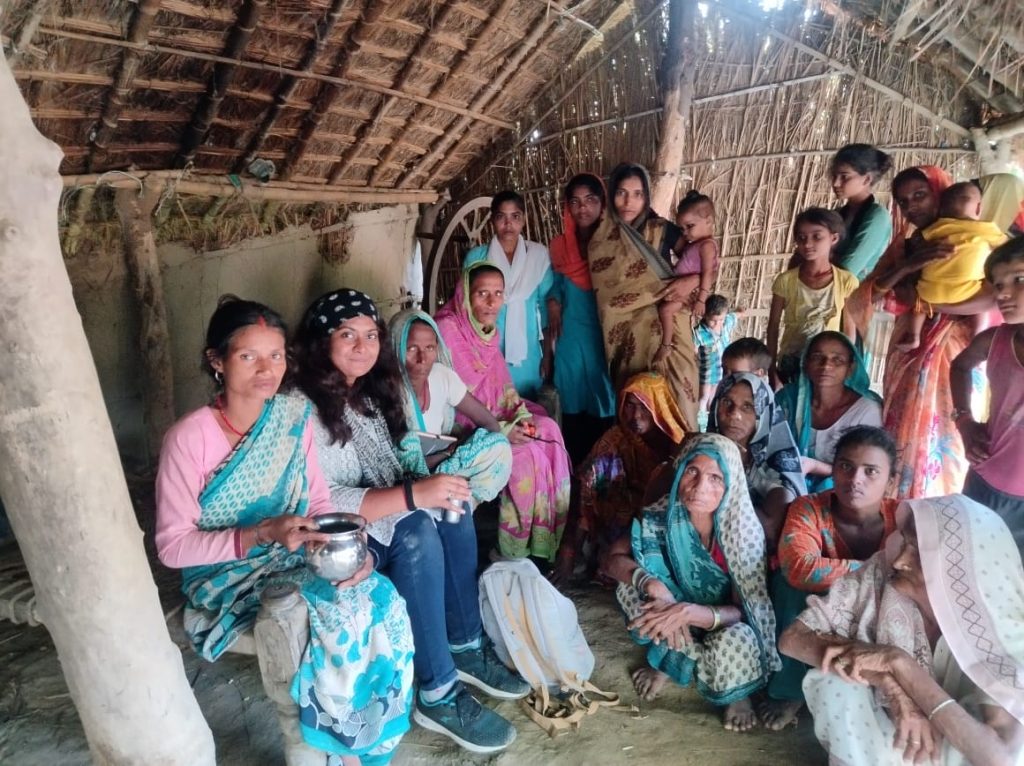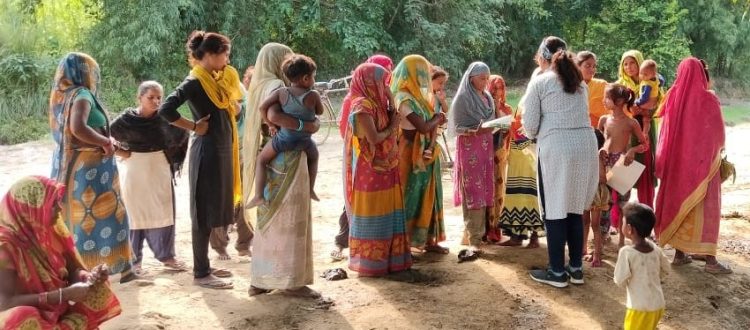Art of Rapport Establishment as a Conflict Mitigation Strategy
The role of a community outreach person does not only demand to be a good orator with impressive communication skills but also the ability to emotionally connect with people and create an impenetrable trust bond. The art of rapport establishment with a community who is facing unbearable losses of lives of their closed ones, especially of young children, demands emotional sensitivity and during the conflict of Nanpara range adjoining to Katarniaghat Wildlife Sanctuary in Bahraich district of Uttar Pradesh, I understood that being a woman just adds that extra human touch. The experience was deeply moving and reflects the importance of emotional intelligence, empathy, and the ability to connect with people on a personal level. The ability to demonstrate a profound understanding of the community’s needs and emotions, especially in the face of such tragic losses makes our interventions successful and non-successful.
In the small village of Upariyan Purwa in Nanpara Social forestry range, 4 deaths had been reported since 5th of August this year. All of them were young children between the age of 12-16yrs. The villagers had an unsparing anger towards the forest department and government. At such a critical moment our team was called to help in pacifying the community and to assist in the capture of conflict animals.

Shruthi interacting with community members; Photo by WTI
After reaching the location I decided to go with my team and interact with people without the help of forest staff. As soon as I began interacting with children and women, I learnt that people wished to understand how to protect themselves from such conflicts. Soon the crowd grew to around 400 and people showed interest in speaking to me and taking the conflict mitigation pamphlets.
After the village meeting, I met another group of women who had come with complaint and anger because they had just lost a son. A young boy of 15-16 who had passed away 15 days back. The child’s mother had not eaten anything for 15 days. In the group the demised boy’s grandmother was standing who was angry for asking them to keep their children under vigilance and inside the houses during evening. Although it was not their fault that the children met with such tragic deaths but it was my job to pass the message in a subtle manner without causing any agitation.
I knew this was not the time to be a teacher but to be a family member. What they wanted was to see someone who could understand their pain, who could be a witness to their tragedy and who could shed tears of loss with them. My empathetic heart took the steering and navigated the conversation towards sympathy and soon those who had come angry turned into well-wishers. My eyes were filled with tears of pain seeing the old grandma and we cried together hugging each other. Now the struggle is to minimise this conflict as much as we can so that it does not happen to any other families. All the women hugged me and later in the afternoon took me to meet the mourning mother.

The role of a community outreach person does not only demand to be a good orator with impressive communication skills but also the ability to emotionally connect with people and create an impenetrable trust bond; Photo by WTI
The women who were holding my hands, asked me to tell the mother to eat food. As soon I reached her small hut, she started wailing the story of the loss of her child while holding my hand and crying loudly. Her wails turned louder, my heart filled with pain and eyes filled with tears, everything turned gloomier. After she calmed down, the things she said were beautiful. She was happy to see me and said, had her son not passed away the village would not have been embraced by my presence. I might be bringing prosperity to the village and thus her son whose demise is responsible to call us to the village is ultimately the harbinger of fortune for the village. She offered me milk and food and ate with me after 15 days from her boy’s untimely death. It was a very emotional moment for all of us. The best part was that all the women including the mother and grandmother wanted to join me in my crusade to protect all the other children so that no one has to go through the same pain again.
They also understood that animals are to be protected as well since they don’t have a home too after humans encroached the forests.
This case of the grieving mother and grandmother is a poignant reminder of the power of empathy and human connection in times of tragedy. Our ability to empathize and share their pain, rather than simply offering advice, helped to transform their anger and grief into a sense of understanding and solidarity. The moment when the mother offered me food and ate with me is a testament to the deep bond I formed with the community.
I guess our decision to approach the community alone and connect with the children and women on a personal level rather than relying solely on official channels was a pivotal one. This allowed us to build trust and rapport with the villagers, making them more receptive to the information and support we were offering. If villagers’ basic needs are fulfilled then these incidents will minimise by itself. For example, having toilets and light in the village will ameliorate the situation greatly. People recognising that both human needs and animal protection are interconnected, and improving basic living standards can lead to a safer coexistence, is a valuable insight. Now it’s mine and the organisation’s responsibility to stand up to their expectations.
Shruti Chauhan is the Field Officer working in the Terai Tiger Project









